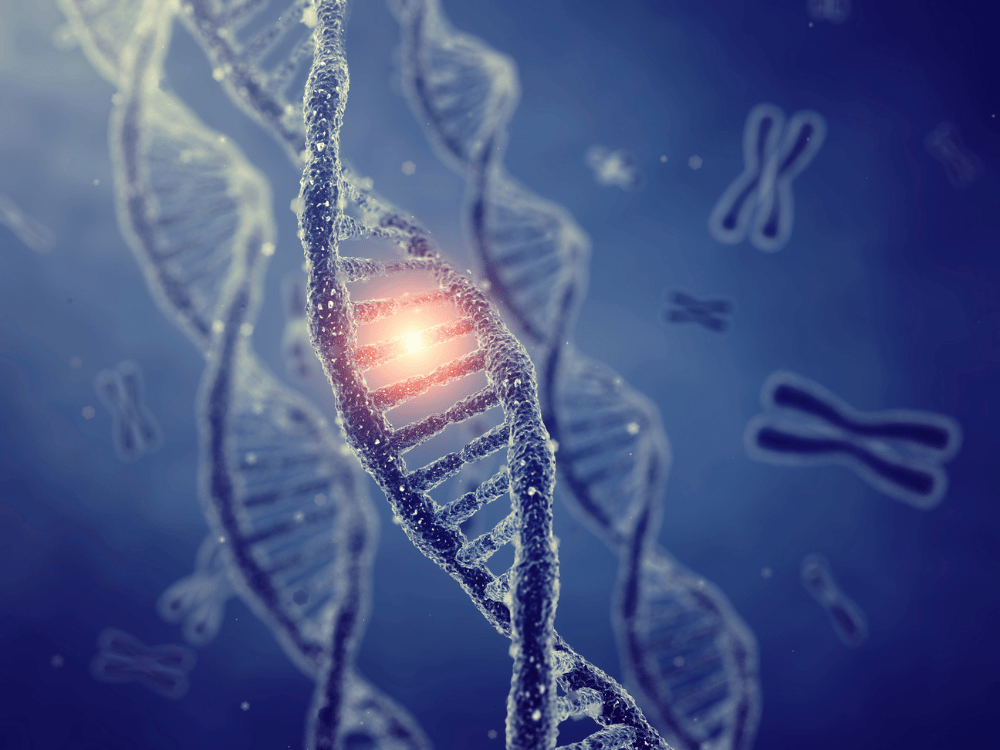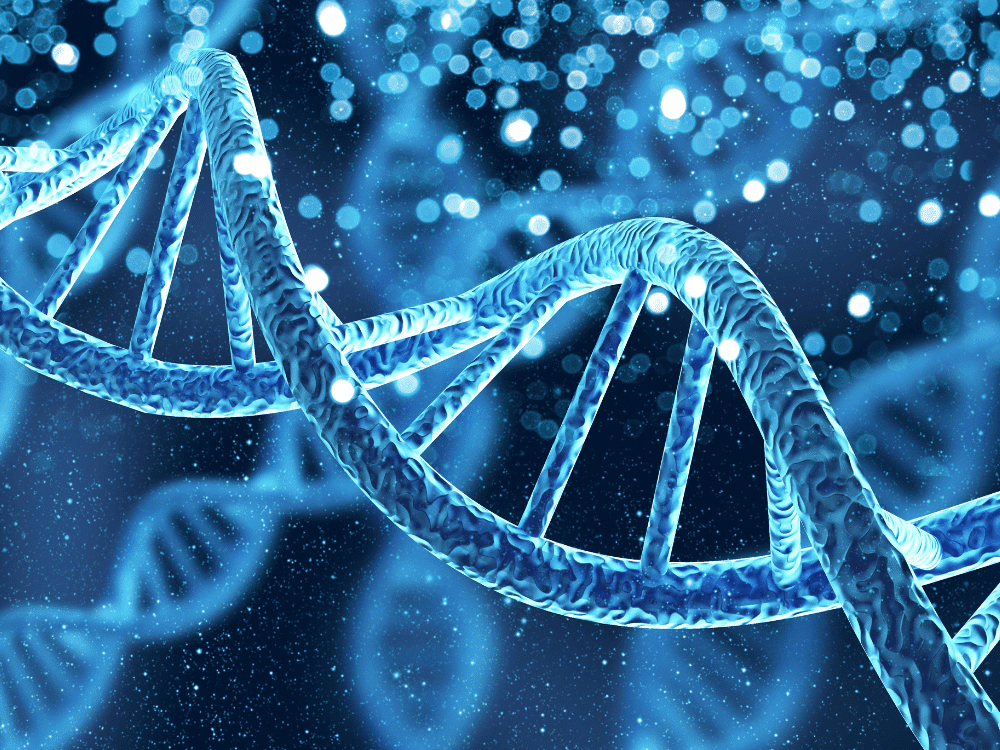Nutrigenomics is an exciting branch of nutrition and genetics that studies how genes influence our response to nutrition and how diet can influence our genes. Although it has been researched for several decades, there are still many undiscovered aspects in this field, which makes nutrigenomics extremely interesting for researchers.
Introduction to nutrigenomics
Nutrigenomics is an interdisciplinary scientific field that studies the interaction between genes and nutrition, and how this interaction affects our health and well-being. The basic concepts of nutrigenomics lie in understanding how our genetic material, or DNA, affects our metabolism and how nutrition can modify the expression of these genes.
Genes play a key role in controlling many processes in our body, including how we process nutrients. Variations in our genetic code can lead to different responses to food. For example, some people may break down certain nutrients more efficiently, while others may be more prone to intolerance to certain ingredients.
In addition, nutrigenomics also investigates how diet can affect gene expression through a process called "epigenetics." Changes in gene expression can occur under the influence of diet, lifestyle and environment. This means that the way we eat can literally turn certain genes on or off, which has consequences for our health.
Essentially, nutrigenomics enables a personalized approach to nutrition by reminding us that each of us has unique genetic characteristics that influence our nutrient needs. Understanding these concepts can help optimize nutrition and support better health and well-being.

Genetic predisposition and nutrition
Genetic predisposition plays a key role in our ability to process certain nutrients. This often refers to enzymes and proteins that are responsible for breaking down and absorbing certain ingredients from food. Two common examples in this context are lactose and vitamins.
Lactose and lactose intolerance
Genetic predisposition plays a significant role in whether a person can effectively break down lactose, the sugar present in dairy products. People who have a genetic variation that reduces the production of the enzyme lactase, responsible for breaking down lactose, can develop lactose intolerance. This means that they have problems digesting lactose, which can cause gastrointestinal problems after consuming dairy products.
Genetic variability in vitamin absorption
Genes also play a role in our body's ability to absorb and use vitamins. For example, genetic variability can affect the absorption of vitamin D, B12 or folate. Individuals with certain genetic variations may require more or less of a particular vitamin to maintain optimal health.
These examples show how important it is to understand your genetic predisposition when it comes to nutrition. Genetic tests and advice from a nutritionist can help tailor a diet to meet individual needs. This is especially important for people who have a genetic predisposition to certain problems with digestion or absorption of nutrients, because proper nutrition can significantly improve their health and well-being.
Nutrigenomics in practice
Nutrigenomics offers numerous practical applications that can be used to personalize nutrition plans and contribute to better health of the individual. Here are three practical examples:
Personalized weight loss diets
Nutrigenomics can help identify genetic variations that affect fat and carbohydrate metabolism. Based on this information, a personalized nutrition plan can be tailored to support optimal weight loss. People who have a greater genetic predisposition to weight gain or difficulties in metabolizing certain macronutrients can use this information to choose a diet that best suits their needs.
Disease prevention
Nutrigenomic analysis can help identify genetic risk factors for certain diseases, such as diabetes, heart disease or cancer. Based on this information, an individual nutrition plan can be adjusted to reduce the risk of these diseases. For example, people with a genetic predisposition to high blood pressure can focus on a diet high in potassium and low in sodium to maintain healthy blood pressure.
Optimization of sports nutrition
Nutrigenomics can also be useful for athletes. Analysis of genetic characteristics can help identify genetic predispositions for certain sports performance, as well as the need for certain nutrients. For example, athletes with genetic variations that increase the need for vitamin D or protein may adjust their diet to improve endurance and recovery after training.
These examples clearly illustrate how nutrigenomics can be useful in practice, enabling the personalization of nutrition to meet individual genetic characteristics and needs. This opens the door to the development of precise and effective nutrition plans that can contribute to better health and better results in many aspects of life.

Genetic tests
There are a growing number of commercial genetic tests that are used to study genetic predisposition to certain diseases or reactions to foods. These tests provide individuals with the opportunity to learn more about their genetic characteristics and how they may affect their health and nutrition. Here are some examples of such tests:
Tests for predisposition to chronic diseases
These tests focus on genetic risk factors for diseases such as type 2 diabetes, heart disease, breast cancer or colon cancer. The results of these tests can help individuals better understand their risk and take preventive measures, including tailored nutrition.
Food intolerance tests
Commercial food intolerance tests analyze genetic variations that may affect the body's ability to process certain food ingredients, such as lactose or gluten. These tests help individuals identify potential allergies or intolerances and adjust their diet.
Drug metabolism tests
These tests look for genetic characteristics that may affect the way the body processes certain drugs. Based on this information, doctors can adjust the doses and types of drugs to achieve better therapeutic effects.
Tests for athletes
Athletes often use genetic tests to better understand their predispositions for certain sports performance, as well as the need for certain nutrients and supplements. These tests help athletes optimize their nutrition and training.
It is important to note that commercial genetic tests often provide useful information, but that the results should be interpreted with the support of experts, such as doctors or nutritionists. Genetic predisposition is only one factor that affects health and nutrition, and other factors such as lifestyle, environment and family history of diseases must not be neglected.
Food and disease prevention
Proper nutrition based on genetic characteristics can play a key role in the prevention of chronic diseases such as diabetes, heart disease and obesity. Understanding how genes affect our metabolism and response to food helps us develop personalized eating plans that reduce the risk of these diseases.
Diabetes
Genetic variations play a key role in the development of type 2 diabetes. People with certain genetic factors may be prone to insulin resistance or a reduced capacity to regulate blood sugar levels. A personalized meal plan can be tailored to control sugar and carbohydrate intake, reduce insulin resistance and reduce the risk of diabetes.
Heart disease
Genetic factors also play a role in the development of heart disease. People with a genetic predisposition to high blood pressure, high cholesterol, or atherosclerosis may have an increased risk of heart problems. A healthy diet, which includes a reduced intake of sodium, saturated fat and cholesterol, can help keep your heart healthy.
Obesity
Genetic factors can also influence the tendency towards obesity. People with certain genetic variations can have a faster or slower metabolism, which affects fat storage. A personalized nutrition plan can be tailored to support the maintenance of a healthy body weight and reduce the risk of obesity.
In addition, genetic tests can identify individual needs for specific nutrients. For example, individuals with a genetic predisposition to poor absorption of vitamin D may require higher intakes of this vitamin to maintain optimal bone health.
Understanding genetic characteristics and their impact on diet can help develop personalized nutrition plans that reduce the risk of chronic disease. These nutrition plans take into account individual needs and predispositions, providing an effective strategy for disease prevention and maintaining optimal health.

The future of nutrigenomics
The future of nutrigenomics promises advances in understanding the link between genes, nutrition and health. Further research in this area could reveal new genetic factors that influence metabolism and response to food. This could lead to the development of even more accurate genetic tests that will allow for more personalized nutrition and supplementation plans.
Also, future research could explore the interaction between genetic factors and the environment, including the influence of the gut microbiome on metabolism and nutrition. These findings could contribute to a better understanding of the complex links between genetics and nutrition.
In an ideal scenario, personalized nutrition could become standard medical practice. Everyone could have access to genetic tests to help them better understand their genetic characteristics and how they affect health. Based on that information, doctors and nutritionists could develop customized nutrition and supplementation plans that will optimize health and disease prevention for each individual.
Ethical aspects
The use of genetic testing and personalized nutrition also raises important ethical questions. Privacy issues are essential because genetic data is considered extremely sensitive information. It is important to ensure that genetic data is stored and used in accordance with strict privacy rules to prevent misuse of this information.
The issue of consent is also important because people need to be fully informed about how their genetic data will be used and what implications this may have for their health and insurance.
In addition, there is also the question of access to personalized nutrition. It should be ensured that everyone, regardless of socioeconomic factors, has access to these advanced services and that additional health inequalities are not created.
In the future, ethical frameworks and regulations must keep pace with technological advances in the field of nutrigenomics to ensure that it is used in a way that is beneficial and safe for all individuals.









